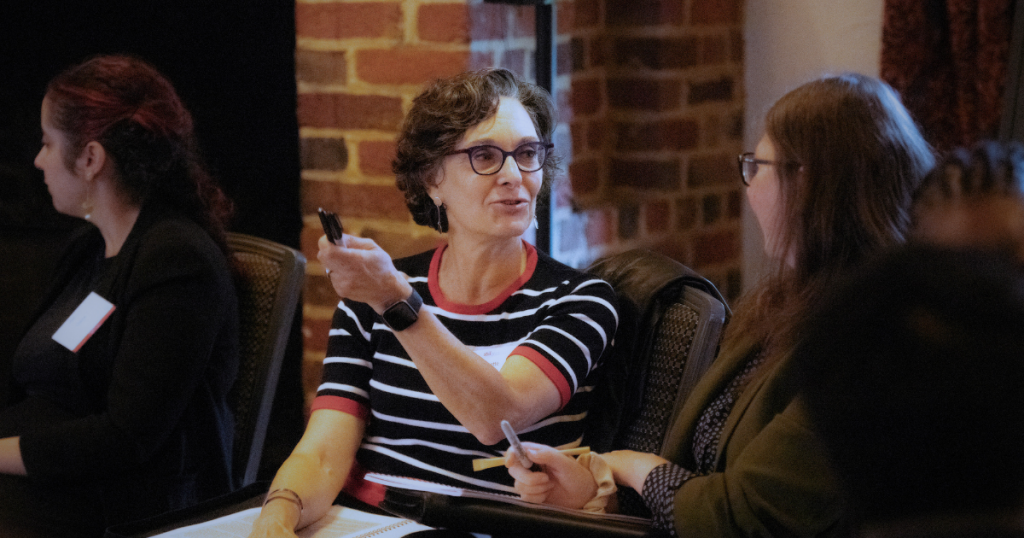
Written by Mudabbir Maajid
As Suzette Brooks Masters starts her new role as US Adviser for School of International Futures (SOIF) we speak to her about her ambitions – for the role and for the future of America.
How can a futures orientation address challenges in American democracy?
Currently, and particularly since 2016, the US pro-democracy movement is in a defensive crouch given the many authoritarian threats it faces. These include intense political polarisation, and the eroding legitimacy of many of its institutions among some segments of the public. A strong defence of democratic institutions is essential, but defence alone is never enough, especially in times of disruption and change like we’re experiencing now.
We need a strong pro-democracy ecosystem, which includes government, business and civil society. This needs to be animated by positive visions of what we want to create and capable of connecting and leveraging actors working tactically in the present, to prevent authoritarianism from taking hold, actors who are changing how we operate in the medium-term through a range of reforms and experiments, and those engaging in systems change and transformation for the longer run.
Foresight and futures thinking could play an important role in making the US pro-democracy ecosystem “futures-ready”. It could inspire Americans to dream big together, and imagine a next chapter for American democracy that will make it fit for purpose to handle 21st century challenges and make the most of 21st century opportunities.
As SOIF’s US Adviser, how will you foster collaborations for a forward-looking governance approach in the United States?
I will leverage my extensive experience and networks in philanthropy, policy and governance circles in the United States. In doing so I hope to jumpstart a long-overdue conversation about adapting the governance innovations SOIF has been championing in other parts of the world to the US context, at the local, state and national levels. This is imperative as the US lags in adopting best practices that incorporate a longer-term time horizon and conditions of deep uncertainty.
Some of this has already begun, starting with the report I authored in 2022, Imagining Better Futures for American Democracy. This report featured SOIF’s work and provided an introduction to futures thinking, strategic foresight and governance innovations to make institutions futures-ready and able to operationalise an intergenerational fairness approach. I have also been making introductions and hosting field building gatherings to promote cross-fertilisation and experimentation.
What governance innovations would you most like to see?
I would like to see a range of governance innovations:
- the establishment of a Cabinet-level Futures Secretary
- a robust Federal Foresight Office
- Chief Futures Officers in states and cities
- a Committee of the Future in Congress and state and city legislatures
- integration of foresight into decision making by policy makers
- an uptick in the use of intergenerational fairness criteria by policymakers.
I would also like to see widespread use of deliberation and participatory processes to surface what the public wants, not only in the present, but for their children and grandchildren. Being “futures-ready” would strengthen the capacity of American institutions, including its elected officials and bureaucracy, to lead responsibly, inspire the public, weather adversity, and take advantage of opportunities as the Overton Window opens.
Sign up for SOIF’s Newsletter to stay informed about our work on anticipatory governance.
